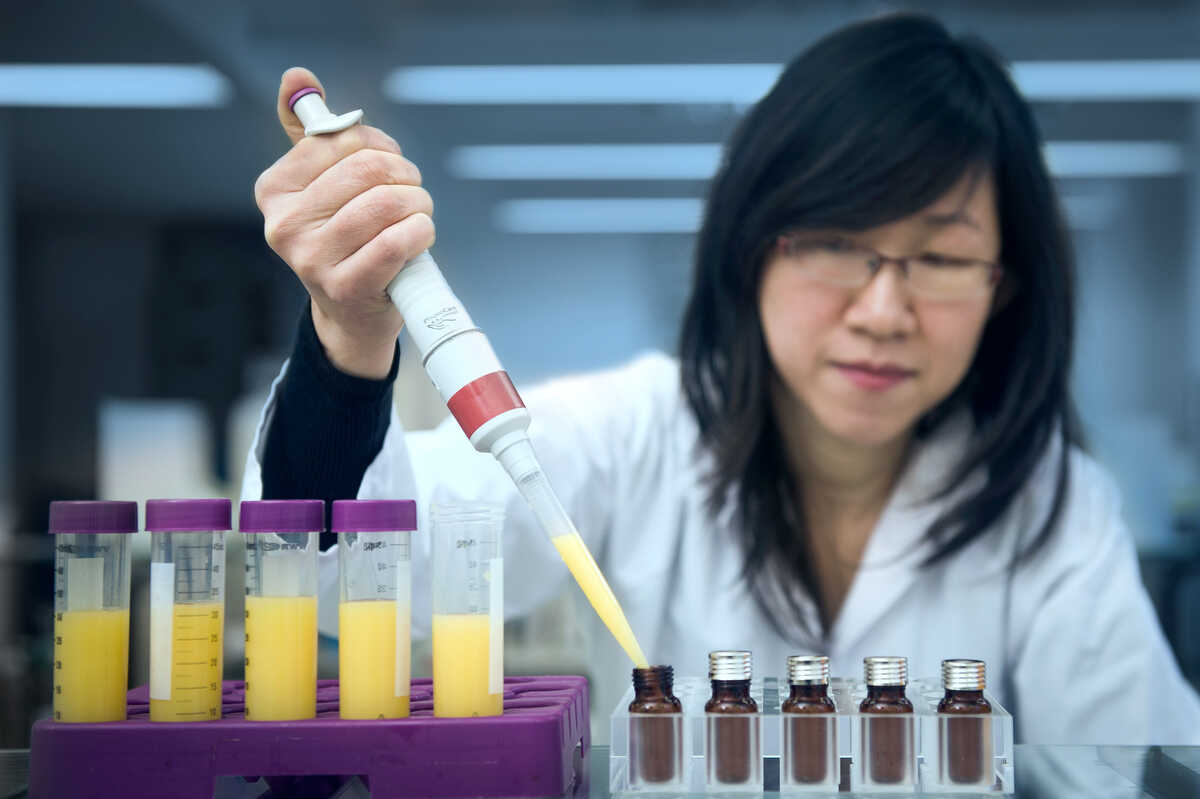- en
- nl

TTO Flanders provides access to the latest technologies and inventions of the Flemish universities and their associated universities of applied science and arts. For the full range of licensing opportunities, please visit the FRIS research portal of the Flemish government.
Here we highlight 10 recent technology offers.
Chromosome abnormalities are very frequent in early human IVF embryos and are considered the main cause of implantation failure and miscarriage. Current detection methods are either unable to capture the full spectrum of chromosomal abnormalities or require DNA from family members, limiting their broader application. APCAD offers an innovative solution by combining chromosome number (CN) with the proportion of maternal copies (%Mat). In doing so, APCAD accurately detects the complete range of chromosome abnormalities without the need for relative DNA, making the method more efficient and reliable for embryo selection.
Low level systemic inflammation is associated with an increased incidence of inflammation associated diseases such as cardiovascular diseases (CVD), auto-immune diseases, depression disorder or obesity related metabolic diseases,…. pCRP is a well-known diagnostic marker of inflammation and infection and has been associated with many of the inflammation associated diseases to a certain extent. However, recently it became clear that a monomeric CRP isoform is the pronounced pro-inflammatory isoform of CRP rather than the well-known pentameric pCRP.
Current treatments for chronic diseases, such as opioids, have a short duration of action and require high dosages, which increases the risk of side effects and reduces treatment adherence. The VUB Research Group of Organic Chemistry (ORGC) has developed an injectable, thixotropic peptide hydrogel that rapidly recovers and provides sustained drug release. This reduces both the frequency of administration and the likelihood of side effects. The hydrogel is biocompatible, easy to synthesise, and can effectively encapsulate a wide range of therapeutic agents, including proteins and morphine. Thanks to these properties, it holds broad potential for use in medicine and tissue engineering.
Impotence, or male erectile dysfunction (ED), is defined as the inability to get and keep an erection adequate for the performance of sexual intercourse. Worldwide, around 50% of all men above the age of 50 years old suffer from ED. Our in-house developed smart patch enables a continuous quality assessment of the rigidity and/or tumescence of a penis during a penile tumescent event. The device would assist in first instance people who have continuous or intermittent inability to achieve or maintain an erection for satisfactory sexual penetration, and thus having an ED.
The University of Antwerp (TPR) has developed advanced logistics chain cost calculation instruments for interurban and urban transport. This technology enables companies to see which mode or combination of modes is most cost-efficient, both from an operational and a societal point of view.
Bovine mastitis, an inflammation of the cow’s udder that is usually caused by a bacterial infection, is the most important economic disease affecting dairy cattle. Bacteriophage-derived endolysins (“enzy-biotics”) are increasingly gaining attention due to their specificity, high killing efficacy, unlikely resistance development and rapid degradation in the environment. We engineered a novel and performant endolysin, NC5. NC5 has the potential to kill AMR streptococci, also in raw milk, accelerate bacterial killing, kill intracellular streptococci and eradicate streptococci-formed biofilms.
Current antiprotozoal treatments against protozoal infections are often ineffective, require a suboptimal compoundadministration route, face increasing resistance and are endowed with concerns about toxicity (direct and indirect). Therefore, novel treatment options are needed, to treat a large variety of protozoan-caused infections. We have prepared a purine nucleoside platform in the Laboratory for Medicinal Chemistry (Ghent University), based on known and novel sugar- and purine ring scaffolds. We have demonstrated their ability to act as antiprotozoal agents (primarily against trypanosomes, but also other).
We offer an innovative technique for the production of giant unilamellar vesicles (GUVs) through droplet microfluidics. The produced GUVs are potentially applicable in many different fields such as complex drug delivery devices, synthetic cells and biological sensors.
We present a tigecyclin repurposing opportunity for metastatic uveal melanoma, an orphan oncology indication with a high unmet clinical need. Tigecyclin is a safe, clinically approved, off-patent glycylcyclin antibiotic. We are looking for a partner to further clinically explore and develop this repurposing opportunity.
Dive into the research portal and discover all opportunities.